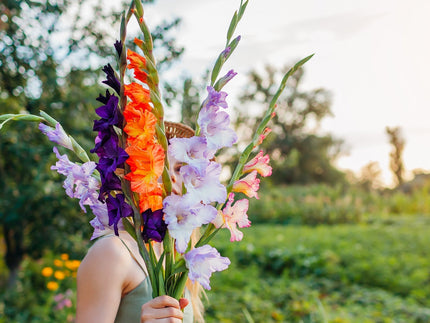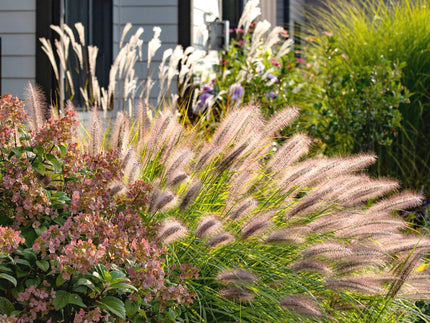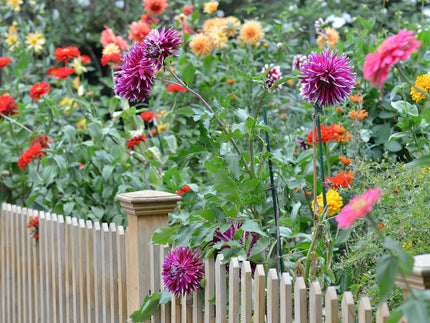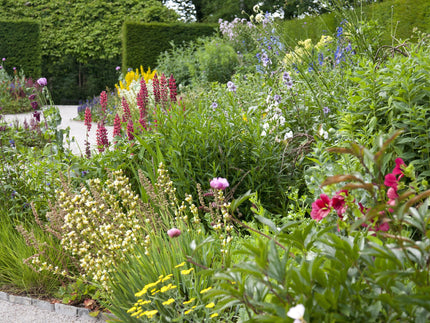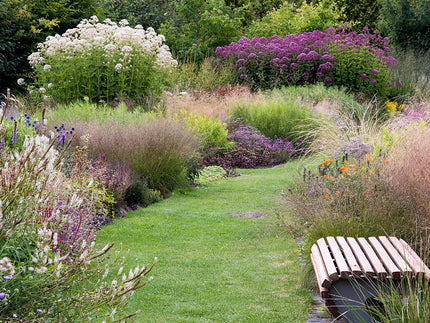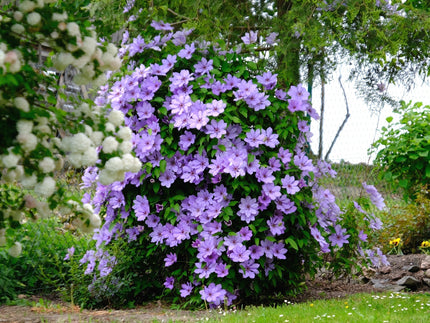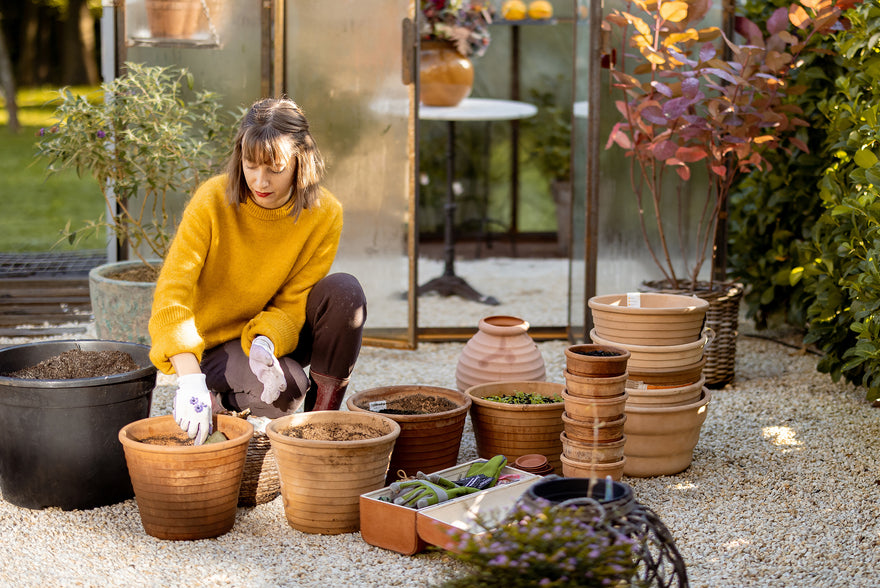
The undeniable benefits of flower bulbs for UK gardens
Planting flower bulbs in the UK is a time-honoured tradition, transforming dull and drab gardens into vibrant, colourful havens. These compact powerhouses of potential are remarkable for their resilience, ease of planting, and the spectacular displays they offer. Whether you’re an experienced gardener or an enthusiastic beginner, flower bulbs can dramatically elevate your garden's aesthetic appeal. In this blog post, we’ll explore the myriad benefits of incorporating flower bulbs into UK gardens, providing useful tips to help you make the most of your horticultural efforts.
What are flower bulbs?
Flower bulbs are essentially nature’s way of packaging plants in a neat little bundle. Containing all the nutrients needed to nurture a plant, they comprise a tunic (outer layer), a basal plate (which gives rise to roots), and embryonic leaves, stems, and flowers. Common examples include tulips, daffodils, crocuses, and hyacinths. Each type offers distinct beauty and charm, adding depth and character to gardens across the UK.
Seasonal variety
One of the standout benefits of flower bulbs is the sheer variety available throughout the seasons. Whether it’s the bright, cheery daffodils and tulips in spring, the vibrant lilies and gladioli in summer, or the stunning autumn crocuses, flower bulbs ensure that your garden remains captivating all year round. By carefully selecting an assortment of bulbs that bloom at different times, you can achieve continuous bursts of colour from early spring until late autumn.

Easy to plant and maintain
For those who might not possess a green thumb, flower bulbs are a fantastic choice due to their ease of planting and low maintenance. Most bulbs require little more than being planted at a specific depth, watered, and occasionally fertilised. This makes them an ideal option for novice gardeners or those with busy schedules. Additionally, many bulbs naturalise, meaning they come back year after year without you needing to replant them, thus reducing the annual gardening chores.
Cost-effective beauty
Compared to buying mature plants or annual flower bedding, bulbs offer significant cost savings. Purchased in bulk, they can be an economical way to create extensive floral displays. Over time, many bulbs will multiply and spread, giving you even more bang for your buck, as they fill out garden beds with minimal additional investment.
Versatility
Flower bulbs are incredibly versatile, fitting seamlessly into various garden themes and styles. Whether you’re aiming for a traditional English cottage garden with drifts of daffodils and snowdrops, a modern minimalist space accented with alliums, or a wild and natural look with crocuses scattered across a lawn, bulbs can adapt to your creative vision. They can be planted in flower beds, borders, containers, or even directly into lawns, offering endless possibilities for garden design.

Pollinator-friendly
In an era where the decline of pollinators like bees and butterflies is a growing concern, flower bulbs provide vital nectar and pollen sources early in the year. Spring bulbs such as crocuses, fritillaries, and grape hyacinths bloom when other flowers are scarce, offering an important food source for pollinators emerging from winter hibernation. By planting flower bulbs, you’re not just beautifying your garden but also contributing to the health of your local ecosystem.
Resilience in UK climate
The UK’s varying weather conditions can be a challenge for many plants, but most flower bulbs are remarkably resilient. Bulbs such as daffodils, snowdrops, and tulips are well-adapted to survive the UK’s cold, damp winters. They lie dormant underground, protected from frost, and burst into life as the weather warms up. Their ability to thrive in different soil types and withstand a range of weather conditions makes them a reliable choice for UK gardeners.

Layers of interest
Creating a garden with different layers of interest can be easily achieved with bulbs. You can plant them in layers or “lasagna planting,” where bulbs are planted at different depths in the same pot or garden bed. Early bloomers like crocuses can be planted on top, with mid-season tulips in the middle, and late-season alliums at the bottom. This technique ensures a succession of blooms, providing continuous interest and colour over several months.
Encourages outdoor activity
Gardening with flower bulbs encourages people of all ages to spend time outdoors, engaging in physical activity and enjoying the fresh air. Planting, watering, and maintaining a bulb garden can be a fun and therapeutic activity, providing a welcome break from the stresses of daily life. It’s also a wonderful way to involve children in gardening, teaching them about plant life cycles and the joys of nurturing living things.
Great for cutting gardens
Many flower bulbs produce excellent cutting flowers, allowing you to bring the beauty of your garden indoors. Species like tulips, lilies, and hyacinths make stunning bouquets and floral arrangements, brightening up your home with their colours and fragrances. Moreover, having a cutting garden can be a fulfilling hobby and can even offer opportunities for making small arrangements as gifts for friends and family.

Summary
Incorporating flower bulbs into your UK garden offers a plethora of benefits, from continuous seasonal colour and ease of maintenance to supporting local pollinators and enhancing your garden’s overall design. Their adaptability to various garden styles and climates makes them a must-have for gardeners of all skill levels. By choosing the right bulbs and following proper planting and care techniques, you can transform your garden into a vibrant and thriving paradise year after year.
So, why not delve into the delightful world of flower bulbs this season? With their unrivalled beauty and minimal requirements, flower bulbs are the quintessential addition to any UK garden!
































































































































































































